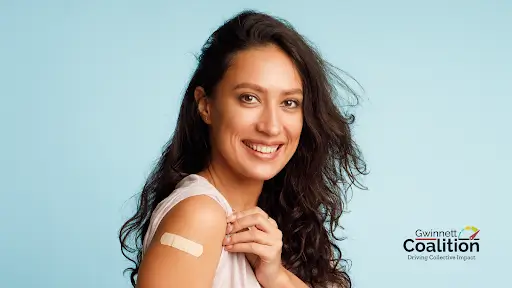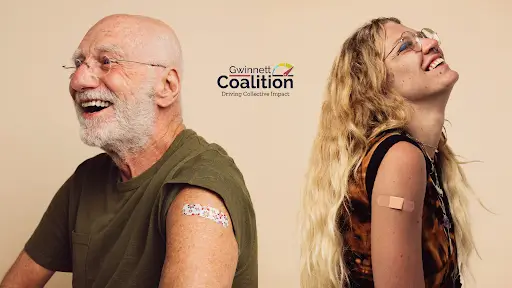The Truth About Adult Vaccines

We are often used to thinking that vaccines are only really needed in childhood. In reality, all of us need protection, even when we are well into adulthood.
Adults are actually recommended more vaccines than the Flu and Covid-19 shot, and each is made to protect you from illnesses that can make a serious impact on your overall well-being. Unfortunately, in recent years there has been a lot of controversy and misinformation regarding the safety of vaccines, leading people to question the need for them at all. In this blog post, we will talk about adult-recommended vaccines, common myths and misconceptions, and set the record straight on vaccine safety.
Adult Recommended Vaccines
Vaccines are made to create an immune response in the body, ultimately causing the body to make a protective layer against the disease. This is the same for all vaccines, including those recommended for adults.
Adults are recommended to have vaccines for a variety of reasons. Sometimes factors like age, job, lifestyle, travel, and health conditions can put some people at risk if they were to get a serious, preventable disease.
It’s important that before any vaccine, adults talk to a healthcare provider to see if they need or are encouraged to get a vaccine. Some of the most common vaccines recommended for adults include:
Shingles Vaccine
The Shingrix (Shingles) vaccine protects against Shingles and PHN. Once you receive this vaccine shot, it creates about 90% immunity/effectiveness for about 7 years. It’s recommended for adults over the age of 50 and those over the age of 19 who have weakened immune systems.
Depending on your health, age, and other contributing factors, you may need two doses of this shot. However, if you are pregnant, have shingles, or are allergic to an ingredient in the vaccine, you are not recommended to get this vaccine.
That’s why, it’s so important to talk to a trusted healthcare professional before getting any vaccine. Additionally, it’s also important to keep up to date with the latest information on vaccines. To learn more about the Shringx (Shingles) vaccine, click here.
Tdap vaccine
The Tdap vaccine protects against whooping cough, tetanus, and diphtheria. This shot is recommended for adults who have never gotten a Tdap vaccine before. Once you receive this vaccine shot, it will last about 10 years.
It’s so important that before you take this vaccine, you talk to a trusted healthcare professional. They will let you know which vaccines could be recommended for you in the case of allergies or other contributing health factors. Additionally, it’s important to check up-to-date information on the CDC’s website for all vaccines. To learn more about the Tdap vaccine, click here.
Varicella vaccine
The Varicella vaccine ( better known as the Chickenpox vaccine) protects against chickenpox. This vaccine is recommended for adults who never got chickenpox and were never vaccinated. The recommended dose is two shots about 28 days apart from each other.
Depending on your health, age, and other contributing factors, you may need to wait before getting this shot. Talking to a healthcare professional can help you decide whether it is good for you to get a Varicella vaccine shot.
Keep up to date with the latest information on the Varicella vaccine here.
Common Myths and Misconceptions
As we said earlier, vaccines have been recently subject to lots of myths and misconceptions. Because of that, many adults have been opposed to getting vaccines and have been afraid of false risks and side effects. We’re here to explore some of the most common myths and misconceptions to bring ease to any concerns or fears.
Vaccines carry unsafe toxins.
False. While it’s true that vaccines contain formaldehyde, mercury, and aluminum salts, they’re always within low and safe amounts. Mercury, for example, is not in many vaccines. In fact, most vaccines don’t carry any mercury at all and the mercury that is used does not cause any mercury poisoning.
All ingredients within vaccines have a purpose. They are meant to provide immunity and make the vaccine safe, effective, and long-lasting.
There is no need to get vaccinated in the United States.
False. Vaccines are actually required for work, school, and travel. No matter if there are low infection rates in the United States, prevention is better than getting a preventable disease. Not getting a vaccine can even increase the risk of a vaccine outbreak, even of vaccines that are now considered uncommon.
Not getting vaccinated runs the risk of contracting a preventable disease and spreading it to those you care about. Vaccine-preventable diseases, once contracted, can range from mild to severe or life-threatening depending on the circumstances.
Natural Immunity is more effective than vaccines.
False. Although natural immunity is real, it is not necessarily the most effective. Natural immunity is part of active immunity. Active immunity gives people long-lasting immunity against diseases.
Another way to active immunity is through vaccines. Vaccines actually have more effective and long-lasting immunity than other natural immunizations. That’s why, it’s best to speak with your doctor as to whether vaccines are right for you.
Vaccine Safety
By now, we’ve seen that vaccines are safe, effective, and crucial for protecting ourselves and our communities from preventable diseases. But how do we know that they’re safe?
Vaccines have been a part of our society for many, many years. They have been able to save millions of people every year. Before going out to the public, vaccines go through extensive testing and are monitored once it does go out to the public. There are never any serious side effects for people that receive a vaccine. Some of the most common side effects are slight pain in the place of the shot.
It is also completely safe for people to receive different vaccine shots in one doctor’s visit. In the event you do want to get a vaccine, we always recommend that you check your vaccine status and ask your doctor if the desired vaccine is right for you.
What We Do
© 2023 Gwinnett Coalition. All Rights Reserved

